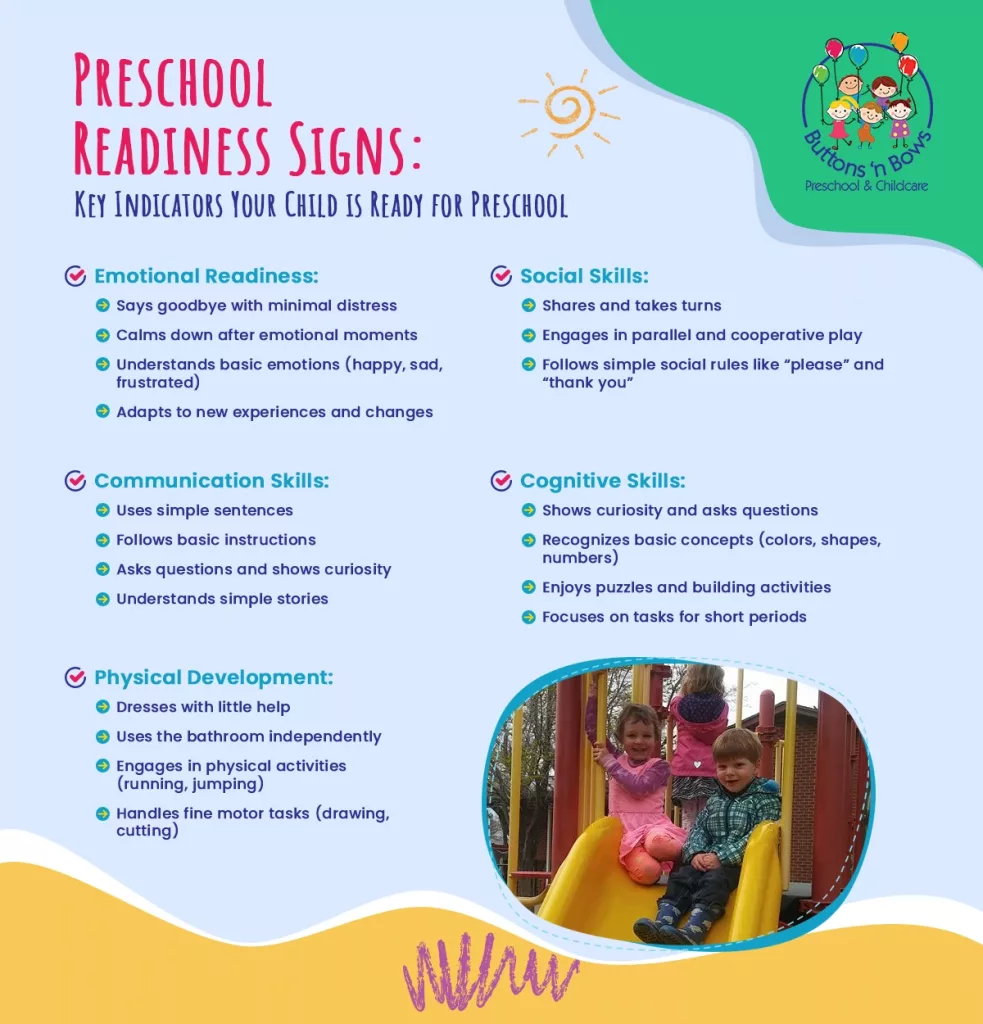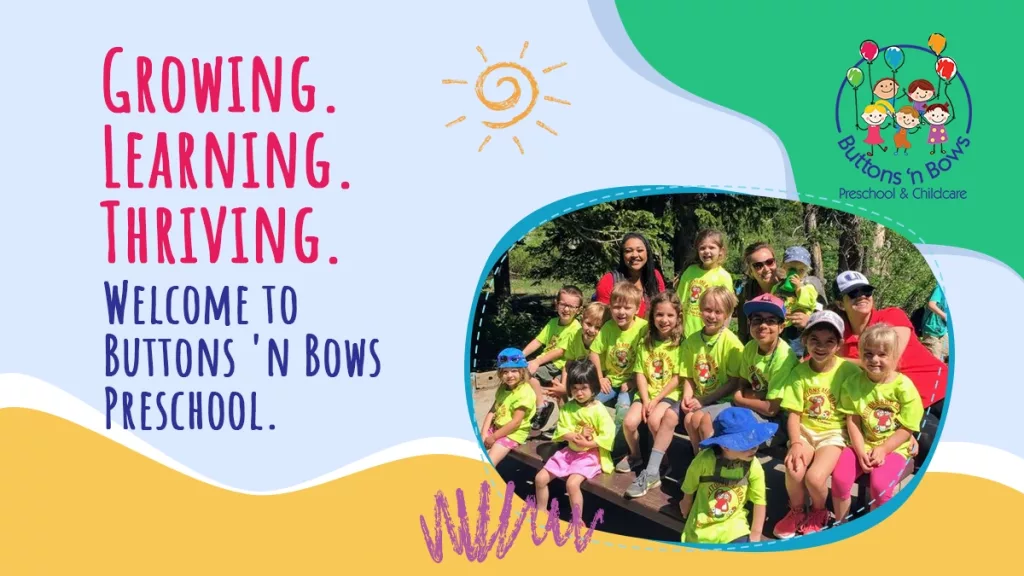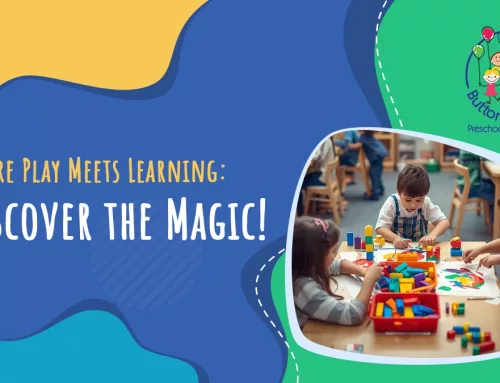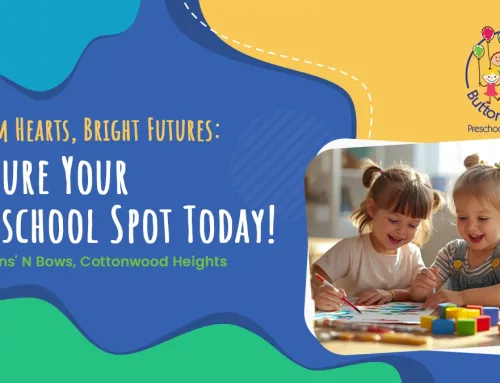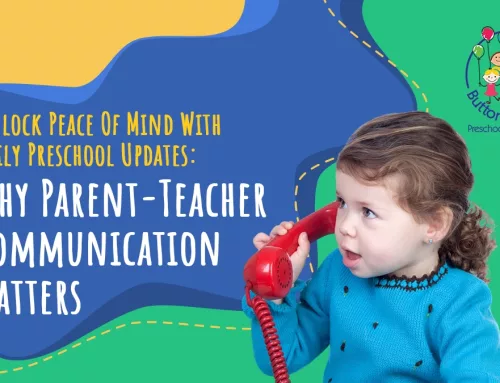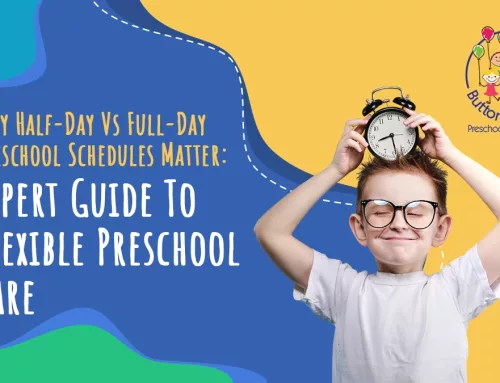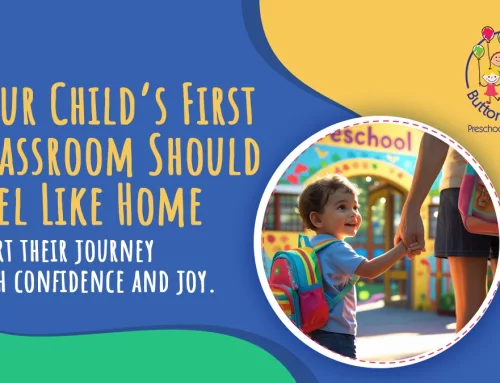As parents, deciding when your child is ready to start preschool is one of the most exciting—and sometimes nerve-wracking—milestones. At Buttons’ n Bows, we completely understand that this is a big decision, and it’s natural to want to ensure your child is fully prepared for their formal learning journey.
Every child develops at their own pace, and there’s no one-size-fits-all approach to preschool readiness. Some children may eagerly embrace the idea of a classroom setting, while others might need a little more time to feel comfortable. That’s why recognizing the signs of readiness is so important—it empowers you to make an informed decision about when the time is right for your child.
In this blog, we’ll walk you through the key signs your child is preschool ready. We’re here to offer helpful insights and support, ensuring that your child’s transition is smooth, enjoyable, and successful every step of the way.
Early Start or Wait? When to Start Preschool
The majority of children begin preschool between the ages of 3 and 5, but every child develops at their own pace. Deciding when to begin depends on your child’s individual needs and readiness.
Starting earlier can boost social and cognitive development, giving children the chance to build key skills like interacting with peers, sharing, and taking turns. These experiences provide a solid foundation for future learning. On the other hand, some children may benefit from more time at home to develop emotional resilience and independence.
When to Consider Waiting
If your child shows signs of not being emotionally ready—such as separation anxiety, difficulty adapting to new environments, or trouble following basic instructions—it might be a good idea to delay preschool. Watch for cues like excessive clinginess, frequent meltdowns in unfamiliar settings, or hesitation around peers. A little extra time at home, filled with consistent routines and opportunities to gradually build social and emotional skills, can often help them develop the confidence they need for a smoother transition when the time feels right.
Preschool Readiness Signs: Key Indicators Your Child is Ready for Preschool
At Buttons’ n Bows, we believe that every child is unique, and readiness goes beyond just age. Rather than relying solely on the calendar, it’s helpful to look at developmental milestones across several key areas—emotional, social, cognitive, and physical.
Here’s a breakdown of the key indicators to consider as you assess if your child is ready to take the exciting next step into preschool.
Emotional Readiness: Can Your Child Handle Separation?
Emotional readiness is about your child’s ability to manage separation and emotions in a group setting. While it’s normal for children to feel some level of separation anxiety, children who are ready for preschool:
- Can say goodbye to parents with minimal distress.
- Are able to calm themselves after a brief emotional outburst.
- Understand and express basic emotions, like happiness, sadness, or frustration.
- Are able to cope with new experiences and adapt to changes in routine.
In preschool, children are introduced to many new people and situations, so emotional resilience is key. If your child can handle these transitions with relative ease, they’re likely emotionally ready for the preschool environment.
Social Skills: How Does Your Child Interact with Peers?
Social skills are crucial for preschool success. Children who are ready for preschool will have developed some important skills for interacting with others, such as:
- Sharing toys and taking turns during play.
- Engaging in parallel play (playing alongside peers without direct interaction).
- Participating in cooperative play (working with others to build or create).
- Understanding simple social rules, like waiting their turn or saying “please” and “thank you.”
At Buttons’ n Bows, we see how powerful these early social interactions are in shaping a child’s ability to thrive in a preschool setting. If your child is already starting to enjoy spending time with other children, can follow basic social cues, and has started forming friendships, they are developing the social skills needed for a successful preschool experience.
Communication Skills: Can Your Child Express Themselves?
One of the most essential preschool readiness signs is the ability to communicate effectively. Children ready for preschool should have a basic understanding of how to use words to express their needs, thoughts, and feelings. This doesn’t mean they need to be able to speak in full sentences right away, but they should be able to communicate in a way that others can understand.
Children who are ready for preschool typically demonstrate the following communication skills:
- Using simple sentences or phrases to express needs, ideas, or feelings.
- Following small and straightforward instructions, such as “please pick up your toy” or “let’s line up.”
- Asking questions and showing curiosity about the world around them.
- Listening to and understanding stories or simple conversations.
Good communication helps children feel confident in expressing themselves in the classroom and ensures they can follow classroom routines and instructions. If your child is starting to use language to interact with others, they’re likely ready for the verbal and social interactions in preschool.
Cognitive Skills: Is Your Child Interested in Learning?
Cognitive readiness doesn’t mean your child needs to know their ABCs or be able to count to 100, but they should have a developing interest in learning new things.
School introduces children to a wide range of engaging activities, from puzzles and games to songs and stories. A child ready for preschool will engage with these experiences and have the skills to participate.
Children who are ready for preschool will:
- Show interest in learning new things, like asking questions or exploring objects.
- Recognize basic concepts, such as colors, shapes, and numbers.
- Enjoy activities like puzzles, games, or building with blocks that require reasoning.
- Demonstrate curiosity and the ability to focus on tasks for short periods of time.
Problem-solving skills are also part of cognitive readiness. Can your child complete simple tasks like fitting shapes into a shape sorter, building with blocks, or solving puzzles? A child who enjoys engaging in these types of activities is showing that they have the cognitive foundation needed for preschool learning.
If your child loves to explore, “why” questions, or is beginning to engage with basic learning materials, these are clear indicators that they are developing the cognitive readiness needed for preschool.
Physical Development: Is Your Child Independent?
Physical independence is another vital sign of preschool readiness. At preschool, children need to be able to take care of some basic self-care tasks, as well as engage in activities that require physical coordination. Children who are ready for preschool should be able to:
- Dress themselves (put on shoes, zip up jackets, etc.) with minimal assistance.
- Use the bathroom independently.
- Participate in gross motor activities, like running, jumping, and climbing.
- Perform fine motor skills, such as drawing, cutting with scissors, or holding a pencil.
- Follow basic routines (like lining up or sitting down for snack time).
In addition to self-care, physical readiness includes motor skills, both fine and gross. Fine motor skills involve tasks like drawing, coloring, or using scissors, while gross motor skills involve activities like running, jumping, and climbing.
Independence in these areas builds self-confidence and helps children transition into a structured preschool setting where they need to manage themselves and participate in group activities.
“I Can Do It Myself!” – Child Development Milestones for Preschool Independence
One of the most exciting signs that your child is ready for preschool is their growing sense of independence. At Buttons’ n Bows, we see how crucial this stage of development is. It’s not just about learning to dress themselves or feed themselves; it’s about building self-confidence and the ability to take on new challenges with a positive attitude.
Preschool is a big leap in terms of autonomy, and children who are ready for this next step will begin showing signs of independence in various areas of their lives.
- Dressing Themselves: Your child may be starting to put on their shoes, zip up jackets, or manage other basic clothing tasks with minimal assistance. These small tasks build confidence and allow them to feel capable and self-reliant.
- Using the Bathroom Independently: By preschool age, children should be able to use the toilet independently. This is not just a matter of physical readiness—it’s about helping them gain control over their body and environment.
- Feeding Themselves: While preschool will provide meals and snacks, children who are ready for preschool should be able to eat independently with basic utensils, clean up after themselves, and manage their food without much help.
- Regulating Emotions: While they may still need help managing big feelings, children who are learning emotional independence can usually calm themselves after minor upsets, like when a toy is taken or a planned activity changes.
- Making Choices: Whether it’s choosing a snack, picking out clothes, or deciding which toy to play with, children who can make these small decisions are building the skills they need for a preschool environment where they are encouraged to make choices throughout the day.
When children reach these milestones of independence, they are not only ready to participate in preschool activities—they are also ready to thrive in an environment that promotes growth and learning. Independence helps them feel confident in their abilities, which in turn boosts their willingness to take on new challenges, make decisions, and interact with others in positive ways.
At Buttons ‘n Bows, We’re Here to Support Your Child’s Transition Into Preschool
Starting preschool is more than just a new routine—it’s a significant step in your child’s journey toward independence, growth, and discovery. At Buttons’ n Bows, we understand how meaningful (and sometimes emotional) this transition can be for families. That’s why we’ve created a warm, welcoming environment where every child is seen, supported, and encouraged to thrive. For additional support during this transition, visit this helpful preschool transition guide by NAEYC.
From personalized care to engaging, hands-on learning experiences, we’re here to help your child feel excited about learning and confident in themselves. Whether they’re still building those early independence skills or ready to jump in, our team is here to meet them where they are.
If you’re exploring preschool options, we invite you to visit Buttons’ n Bows and see what makes our program special. We’d love to share how we can support your child’s preschool journey. Reach out to us today for more information or to schedule a tour of our welcoming space.




